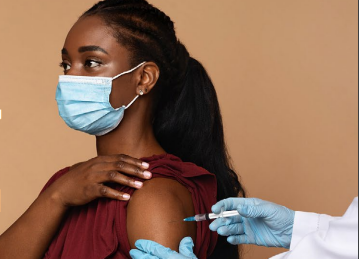No Vaccinations, No Services: Mandatory Vaccination Directive in Kenya

On Sunday, November 21, 2021, Health Cabinet Secretary Mutahi Kagwe announced several strategies that are being proposed to contain the Covid-19 pandemic. These strategies are:
- Making proof of full vaccination a prerequisite to receiving government services from December 21, 2021.
- Counties to ramp up on testing and vaccination. Vaccination drives to be done through outreaches during market days and other approved days.
- Players in the transportation sector to require proof of vaccination before offering services to passengers.
- Proof of vaccination to be required for admission into national parks and game reserves, hotels, bars and restaurants.
- Visitors/tourists/travelers from the European region MUST be fully vaccinated and provide proof of vaccination before entry into the country.
- In view of the Emergency Use Authorization by PPB and following WHO recommendation, vaccination of young people with Pfizer commenced on Tuesday, November 23, 2021, lowering the applicable age to 15 years and above.
While local Covid numbers have been very low, there are worrying trends in European countries like the Netherlands, Austria, France, Belgium, United Kingdom, Australia and the USA, where new COVID-19 surges are being observed despite successful vaccination campaigns. This week, Slovakia went into a two-week lockdown. The Czech government declared a 30-day state of emergency involving early closure of bars and clubs and a ban on Christmas markets, while Germany on Thursday crossed the threshold of 100,000 Covid-19-related deaths.
As the Kenyan government is making vaccination mandatory, the European Commission is proposing that EU residents have booster shots if they want to travel to another country in the bloc next summer without the need for tests or quarantines. As of Thursday, a total of 6,700,134 vaccines had been administered in Kenya. Of these 4,143,379 were partially vaccinated while those fully vaccinated were 2,556,755. The government’s target is 27,246,033 and the overall goal of achieving herd immunity is vaccinating at least 30 million Kenyans before the end of next year.
So far, Kenya has received 10.7 miIlion Covid-19 vaccine doses and is expecting another 8.1 million doses of various vaccines. The government is concerned that only 18% of the elderly population is fully vaccinated and that vaccine uptake has generally slowed down in several counties following the lifting of the curfew last Mashujaa Day. Of particular concern are counties with high population densities such as Siaya, Meru, Bungoma, Busia, Migori, Kakamega and Homa Bay where full vaccination status is below 5%. Citizens in these counties are the ones likely to suffer the most come December 21 when the directives are implemented.
Business community sentiments
The business community suffered due to Covid prevention measures and they will rally behind any measure that will take the world back to pre-Covid times. Many companies around the world and locally have required their staff to get vaccinated as part of their back-to office Occupational Safety and Health measures. Therefore, this directive by the Kenyan government will receive their utmost support.
The recent low Covid numbers have given many businesses an opportunity to ‘resurrect’ and many are looking forward to receiving a kiss of life this Christmas. A Covid surge threat is a threat to their businesses and if vaccination is the solution, then they will support it. For those that need their staff to be vaccinated, they should ensure that they follow the law.
The Law is very clear…
On the issue of mandatory Covid vaccination, the law is not very clear. Whilst most laws respect the principle of personal autonomy, this is usually waived for purposes of public health. Covid has been a public health issue and many fundamental rights and freedoms have been limited because of it. The mandatory vaccination directive opens another discussion on the limitation of rights for health purposes. Kenya has many compulsory vaccinations especially for children and almost all Kenyan adults were inoculated against diseases such as polio. Therefore, the Covid jab will not be the first compulsory jab in Kenya, it will just join the others under Kenya Expanded Programme on Immunisation (KEPI) that are usually given to children.
In Austria, mandatory vaccines for citizens will be introduced from February 2022 and those who refuse to get jabbed and do not have a medical exemption get fined up to 3,600 euros. The country has the lowest vaccination rate in western Europe, with just 66% of its population fully vaccinated. They join Indonesia, Micronesia and Turkmenistan among countries with national vaccination mandates. In September, France introduced compulsory vaccination certificates for healthcare workers, and a ‘health pass’ became essential in July for access to cafes and restaurants, as well as planes and trains.
In the United States, the Occupational Safety and Health Administration (OSHA) mandated that businesses with at least 100 employees should require staff to get vaccinated or face weekly tests and face mask requirements. Republicans have successfully stalled the legislative approval of the government-issued mandate that would make vaccination, or weekly testing, compulsory for workers in companies with 100 or more employees from January 4, 2022. The OSHA directive has also been challenged in the American court by many litigants.
In Kenya, a litigant has rushed to court to challenge the Ministry of Health’s directive and on Thursday, Germany reported 73,887 new coronavirus cases. Perhaps as we discuss the issue of mandatory vaccinations, the question is, do they really help?

